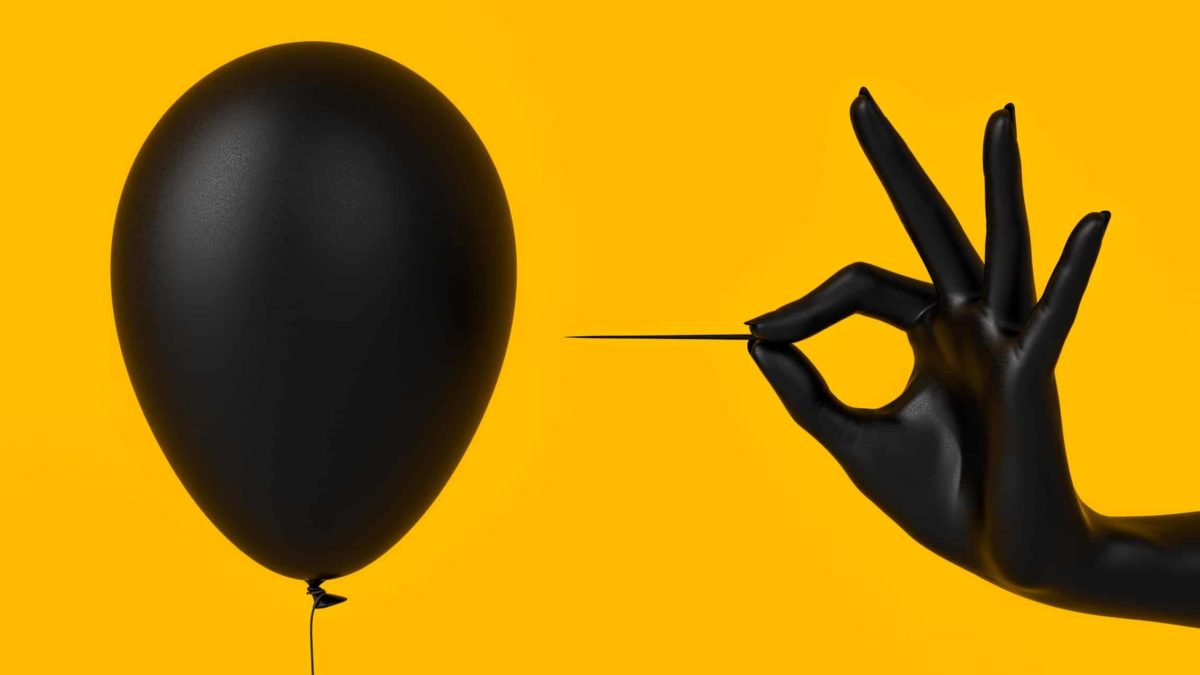Life is inherently uncertain.
That's true for you and me as individuals. And it's inescapable when you take all 7.8 billion of us together.
If we needed any reminding, 2020 did the trick.
But November looks like it may go a long way to putting 3 of the great uncertainties that have been roiling share markets to bed.
First Brexit. (Remember when that was our greatest worry as investors?)
The European Union and the United Kingdom have set 15 November as the deadline to ink a new trade deal. While that agreement has yet to be reached, European Commission President Ursula von der Leyen and UK Prime Minister Boris Johnson spoke by phone over the weekend to hammer out remaining obstacles, like fishing rights.
Whether the Brexit woes fade comfortably into the rear-view mirror in November remains to be seen. But sooner or later, they will.
Second, one of the most hotly contested elections in United States history. (And, like it or not, what happens in the world's biggest economy matters to Australia and our share markets.)
The world won't know for certain whether Democrats or Republicans hold the balance of power in the Senate until after the runoff election in January. But it is increasingly likely that Joe Biden will move into the White House. And with that certainty, markets can move forward.
Third, the cursed coronavirus. If anything has unleashed mass uncertainty onto the world and global share markets it's the global pandemic.
Yesterday I shared a quote in this article from Chris Gaffney, taken from Bloomberg. He's the president of world markets at TIAA Bank. Here's what Gaffney said:
The biggest factor investors have to be aware of and the biggest thing that's going to determine returns in the short-term is COVID. It's not going to be who's in the White House, it's not going to be if we get a stimulus package or not. It's all about COVID right now.
This morning, a look at the global share markets has proven Gaffney 100% correct regarding short-term returns.
Is this the beginning of the end for COVID-19's economic death grip?
You've probably heard the, hopefully, great news. (Fingers crossed!)
Pfizer Inc (NYSE: PFE) and BioNTech SE (NASDAQ: BNTX) announced that their experimental vaccine effectively prevented more than 90% of symptomatic infections in a major trial.
While the results still need approval from the US Food and Drug Administration, the companies hope millions of initial doses could be rolled out within months. And none too soon for Europe, the US and the rest of the world where the virus is spreading at a record pace.
As you'd expect, investors celebrated the news, driving markets to new highs.
Well, some of the markets.
Vaccine share market winners
European markets all closed strongly higher, with Germany's DAX PERFORMANCE-INDEX (INDEXDB: DAX) up 4.9%.
The Dow Jones Industrial Average (INDEXDJX: .DJI) and S&P 500 Index (INDEXSP: .INX) also closed well into the green, both hitting new all-time highs during the day.
And the S&P/ASX 200 Index (ASX: XJO) is enjoying its own bullish session, up 1.4% in late morning trade.
Travel and leisure shares are among the biggest gainers on the ASX 200. The Sydney Airport Holdings Pty Ltd (ASX: SYD) share price, as one example of many, is up 10.1% in intraday trading.
Addressing the vaccine news, Citi Private Bank investment strategist Jeffery Sacks said (quoted by the AFR): "More than any fiscal spending package or central bank lending program, a healthcare solution to COVID has the greatest potential to restore economic activity to its full potential."
And Torsten Slok, chief economist at private-equity firm Apollo Global Management Inc stated (quoted by Bloomberg): "This is a game changer, this is what we've been waiting for since March. Overall, this will turn all forecast spreadsheets upside down."
Though not every analyst was equally ebullient. Nigel Green, CEO of financial advisory firm deVere Group, urged caution: "I suspect the markets, which are already in a bullish mood due to the incoming Biden Administration, are overthinking the positive vaccine news. They are being premature in their buoyancy."
They may also be premature with the current selloff we're seeing in yesterday's tech share darlings.
Vaccine share market losers
While travel and leisure share prices are largely rocketing, tech shares that have enjoyed huge tailwinds from the shift to people working, shopping and socialising from home are widely under pressure.
Overnight the NASDAQ-100 (INDEXNASDAQ: NDX) closed 2.2% lower. The Netflix Inc (NASDAQ: NFLX) share price dropped 8.6% yesterday. Most of the other big tech names sold off as well.
And here in Australia, the S&P/ASX All Technology Index (ASX: XTX) is down 4.3%.
ASX 200 online retailer Kogan.com Ltd's (ASX: KGN) share price is down 9.3% today.
Even the JB Hi-Fi Limited (ASX: JBH) share price is falling hard, down 5.3%.
So, does this spell the end of the tech share rally?
Not according to Bloomberg Intelligence analyst Mandeep Singh:
I don't think the trend around e-commerce, video collaboration or shift-to-cloud will change as a result of the vaccine. The valuations look rich for some of these names, but some of these are multiyear growth stories. This is just normal volatility as investors look to rotate into sectors that have been depressed due to the pandemic such as travel, casinos and hospitality.
Foolish takeaway
For our Foolish takeaway, we turn to Scott Phillips. Here's an excerpt from yesterday's Take Stock, the free e-letter he pens:
As an investor… you have to take the world as it is, not the way you wish it was.
And remember, the future is inherently unknowable. All you can do is find an investing process that tends to work more often than it doesn't, and for which the average gains are greater than the average losses.
Leave irrational belief and hope for the football field — and for next year's Bledisloe Cup!
Scott's own investing process has proven valuable for members of his paid advisory service, Share Advisor, who followed his advice.
Since May 2011, the average returns for Scott's ASX recommendations are 58.5%. That beats the benchmark returns by 26.4%.
The US-listed recommendations in Share Advisor have performed even better, with an average return of 210.9% since May 2011. That outpaces the benchmark by 172.3%.
So, please, celebrate the great news of a potentially effective vaccine in the pipeline. But as Scott says, "Remember, the future is inherently unknowable."









